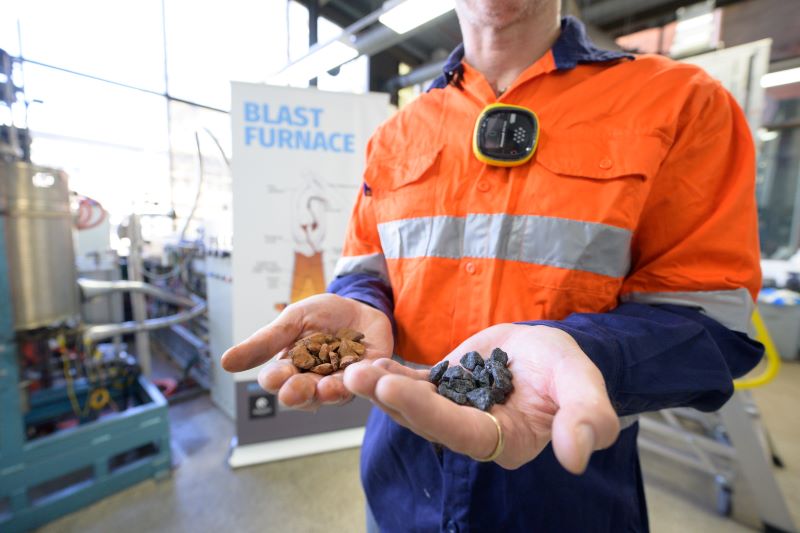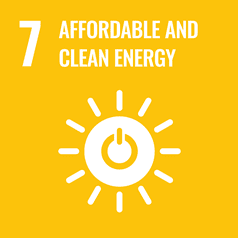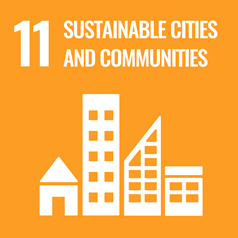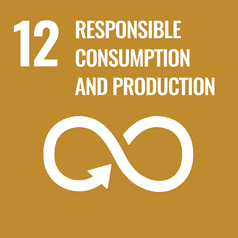
Creating a cleaner, greener steel sector
Researchers from the University of Newcastle are helping the steel and resources sectors reduce carbon emissions and produce cleaner, greener products.
Steel is an essential metal that’s used in almost every industry due to its strength, affordability and versatile nature. Yet roughly seven percent of the world’s greenhouse gas emissions comes from steel production.
In Australia - home of half the world's iron ore reserves - finding practical ways to reduce emissions from iron and steelmaking is critical for the environment and the economy.
The University’s Newcastle Institute for Energy and Resources has built a world-class reputation for delivering industry-focused research that’s helping the steelmaking sector transition to a low-carbon future.
Its longest research collaboration is with BHP – the namesake behind the University’s BHP Centre for Sustainable Steelmaking Research. The partnership supports research into decarbonising steelmaking and is also helping the University train the next generation of researchers, engineers and innovators to help the sector meet its long-term sustainability goals.
A major focus is the development of the electric smelting furnace process as an alternative to traditional blast furnace technology for ironmaking, which is a contributor to CO2 emissions.
In 2025, University researchers secured $3 million from the Australian Renewable Energy Agency to support the development of hydrogen-based direct reduction plus electric smelting using Australian iron ores, in partnership with RWTH Aachen University in Germany and BHP.
University researchers are also:
- exploring ways to reduce emissions from traditional blast furnaces, given they will continue to be a major steel production pathway into the future
- exploring the use of hydrogen-rich fuels while also evaluating raw material behaviour and requirements in modified blast furnace operations
- collaborating with POSCO – a South Korean steel manufacturer – to test the ability to reduce the carbon footprint of blast furnace ironmaking by using biomass (specifically wood pellets) instead of pulverised coal in the ironmaking process
- working with the wider resources sector to explore the ability to partially substitute coking coals with biomass in cokemaking and ironmaking processes, through the Australian Coal Association Research Program.

IMPACT
- Given its global reputation in the steel and iron making sector, the Newcastle Institute for Energy and Resources hosts a bi-annual international conference to help drive innovation in the sector’s transition to net zero.
The 2025 conference saw 170 delegates from 18 countries come together to learn about the latest R&D breakthroughs that support short- and long-term emission reduction strategies.
Attendees included representatives from the top three steel producing countries in the world (China, India and Japan) plus several of the world’s top 10 steel companies, including China Baowu Group, ArcelorMittal, Nippon Steel (Tokyo), POSCO Korea, Tata Steel Europe, JSW Steel India and Australia’s BlueScope Steel. - Drawing on a number of the University’s research insights into electric smelting of Pilbara ores, BHP is participating in the NeoSmelt Project to investigate the development of Australia’s largest ironmaking electric smelting furnace pilot plant in Western Australia. The aim is to test a technology besides the traditional blast furnace for producing iron from Australian ores with significantly lower CO2 emissions.
- The University’s BHP Centre for Sustainable Steelmaking Research has supported 25 PhD candidates, several of whom have gone on to work for international companies such as BHP, Tata Steel, BlueScope Steel and POSCO after the completion of their studies.
More information
Associate Professor Tom Honeyands
Co-Director, BHP Centre for Sustainable Steelmaking Research
Iron ore innovations
tom.a.honeyands@newcastle.edu.au
Dr Arash Tahmasebi
Co-Director, BHP Centre for Sustainable Steelmaking Research
Metallurgical coal innovations
arash.tahmasebi@newcastle.edu.au
Last updated September 2025
Aligned with the United Nations Sustainable Development Goals
Read more impact case studies
The University of Newcastle acknowledges the traditional custodians of the lands within our footprint areas: Awabakal, Darkinjung, Biripai, Worimi, Wonnarua, and Eora Nations. We also pay respect to the wisdom of our Elders past and present.




